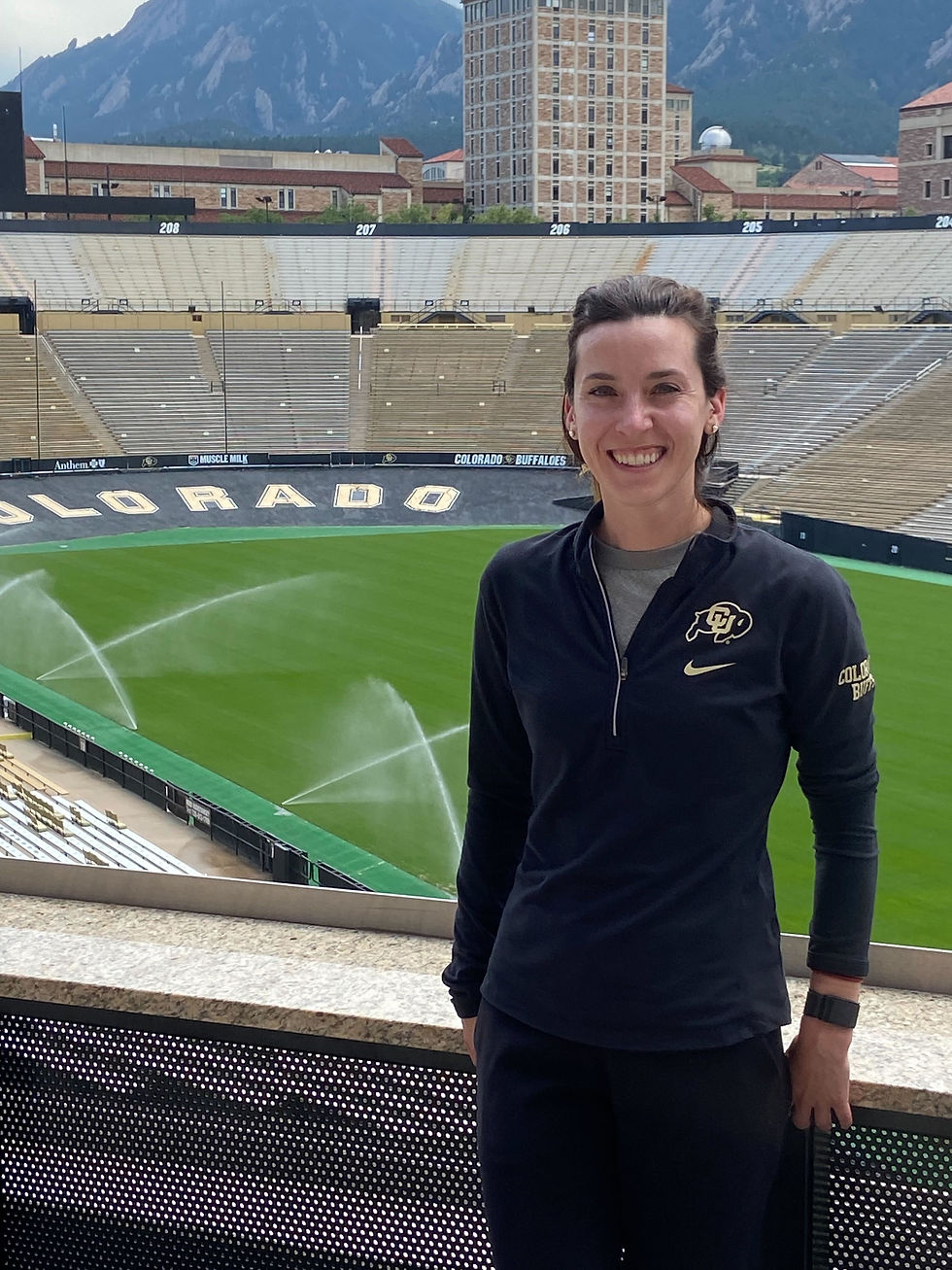Colorado Buffaloes Taking InFlow to New Heights
- matthauck1
- Sep 29, 2023
- 3 min read
You may have been hearing more and more recently about the University of Colorado, but the team behind the team(s) has been raising the bar for athlete support in Boulder for some time now.
Dana Bielinski, MS, RD, Performance Technology and Research Dietitian at University of Colorado keeps a full plate when supporting student-athletes in Boulder. For those who have played on the road in Colorado in any sport, you know how much coaches ask about preparing for the altitude and time zone difference.

Bielinski brings a decade of experience in helping support multiple sports in Bolder.
The Colorado Men’s Basketball staff have to take that into consideration each and every day.
“There is elevation and a dry climate, and those things combined can lead to increased risk of dehydration. Those things have to be factored in on top of the demands of training,” Bielinski adds. “InFlow has made it so much easier for us to get valuable feedback directly to the athlete. It eases the workflow for us and it’s another tool in our kit to make sure they are staying well hydrated.”
Bielinski and her teammate Steve Englehart, MS, CSCS, USAW, Director of Sports Performance for Men’s Basketball, began use of InFlow this past spring to evaluate how it could best fit into their workflow. While they anticipated a steeper learning curve for athletes, the reality was that integrating use of InFlow became easy after a quick introduction. “Once they understood InFlow they were excited to use it. We got great buy-in by gamifying the results and they were reporting back to us more frequently, using InFlow more and more while trying to improve their results day to day. This actually led us to purchase more InFlows for every urinal in multiple locker rooms.”
With athletes spending so much time on campus during a typical day, accessibility to InFlow became a game-changer for encouraging athletes to ingrain better hydration monitoring into their normal routine. Bielinski has her athletes check-in with InFlow prior to morning training sessions, and then encourages athletes to perform follow-up InFlow tests after training.
This experience really hammered home the impact of fluid loss from training and got athletes on top of replenishing fluids throughout the day.
“We are able to use InFlow results alongside data Steve collects such as training loads to reduce cramping and improve players’ knowledge and preparedness for training. We wanted to dive deeper and this helped us better understand the root of an issue we saw with an athlete. Similarly, we really emphasized InFlow use for when athletes were coming back from being sick.”

The team behind the team: Bielinski and Englehart review plans for a weight room session and share updates on player status.
“Even one session has an impact on hydration status. Athletes hear from us all of the time, but for them to actually see it firsthand for themselves- that reinforcement was huge.”
Monitoring with InFlow not only provides instant, object feedback, it’s also paired with customizable guidance via infographics in the locker room area. Bielinski customized their infographics to include the specific hydration solutions available to the athletes so athletes know the exacts steps to take and when.
“The team around the team all work together, and InFlow is a huge tool for athletes to directly see the message that all of us speak to them. In that way it allows us to bridge that gap and deliver a unified message on how to prepare for and recovery from all the work they do.”


